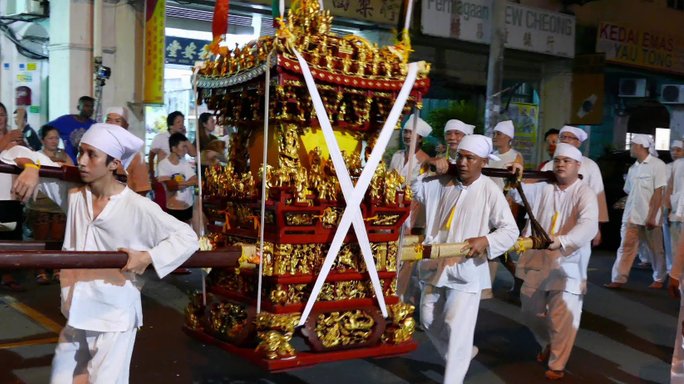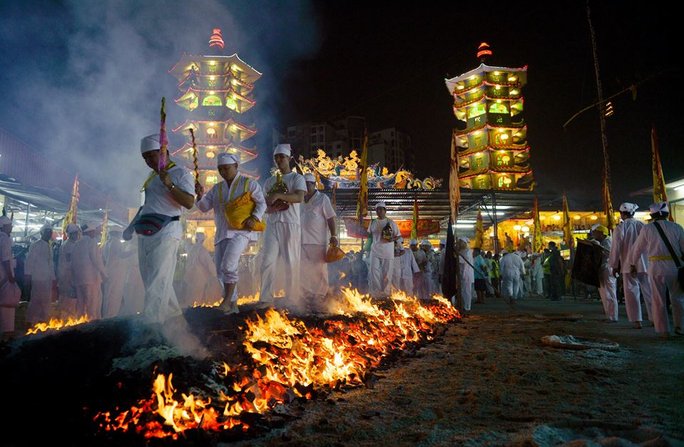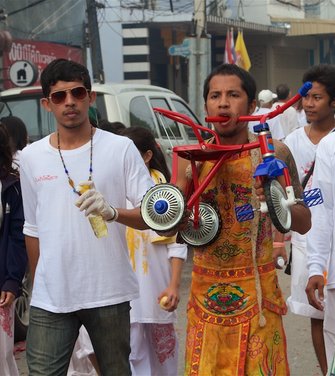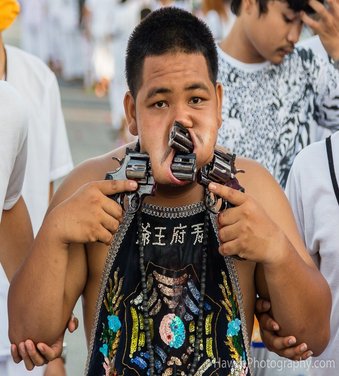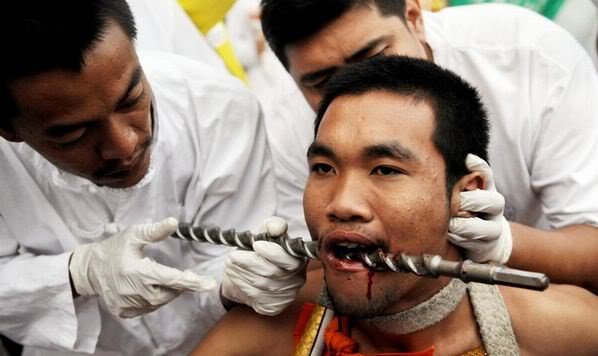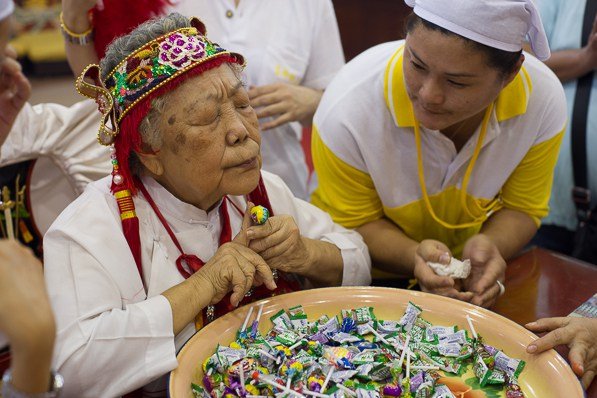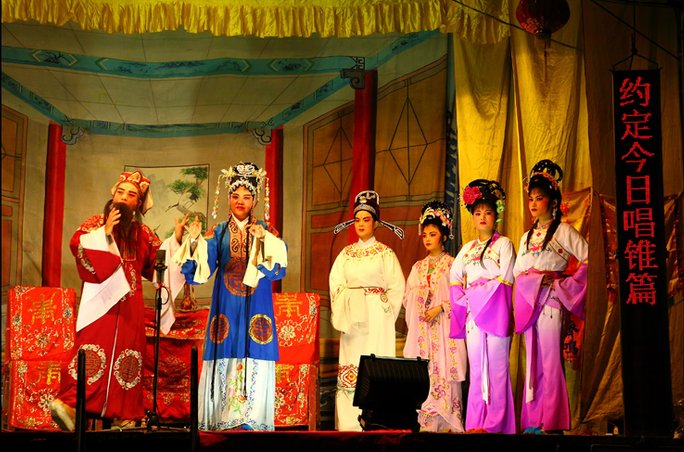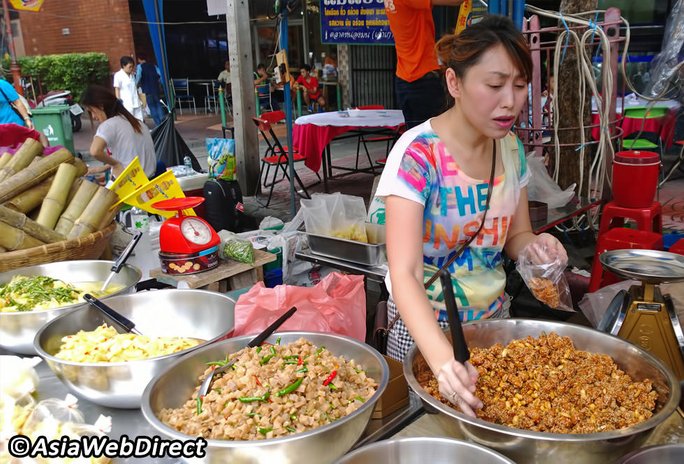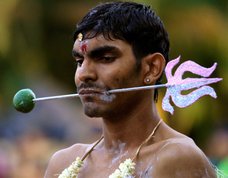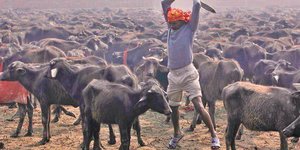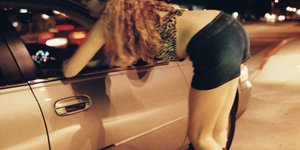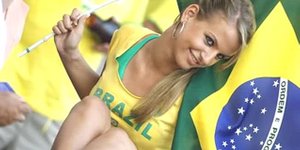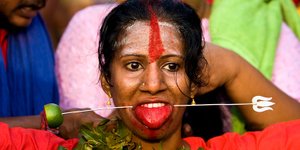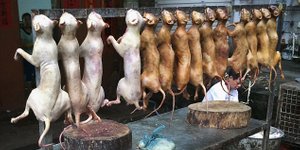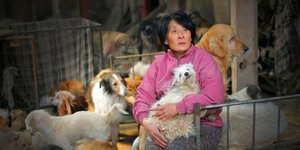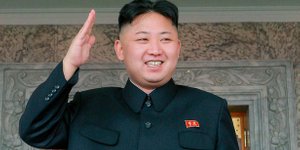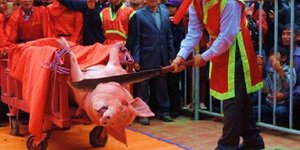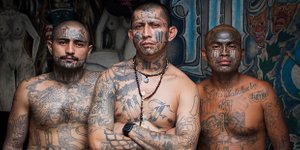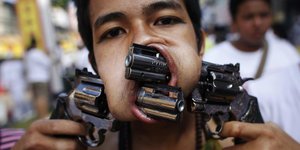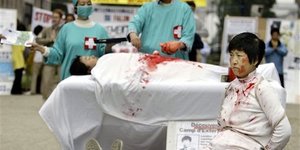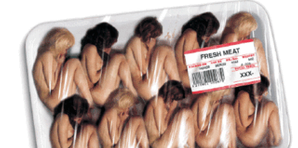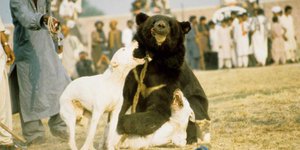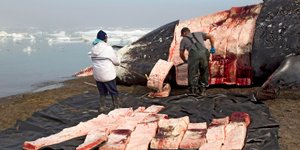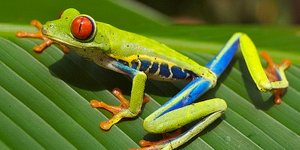All about the Nine Emperor Gods Festival –Vegetarian Festival- Origin, Rituals, Masong
The Nine Emperor Gods Festival is one the most important festival among the Chinese communities of the South Asian countries like Malaysia, Thailand, Singapore, and Indonesia. The whole festival is a 9 day affair. During this festival the devotees maintain a strict vegetarian diet and perform several purification rituals, with the purpose of bringing prosperity and good fortune among them.
Origin
The origin of this festival is not stated clearly. Different religious communities have their own theories regarding the beginning of the festival. One of them is,
Few centuries ago, a group of fishermen were sailing in the sea. While sailing, they found an urn floating in the water. Strange voices came from the urn, asking for help. As the fisherman approached the urn, suddenly a voice echoed that asked them to unseal the urn. The fisherman did as they were told, and following this, they saw nine heads hovering in the sky in broad daylight. Later a fisherman had a dream in which this nine heads alerted him of the approaching storm, but guaranteed him of safety if he raised a flag on the masthead of his boat, with Jiu Huang Ye (Nine Emperor Gods) written on it. The fisherman did as he was told and also persuaded his fellow fisherman to do the same, but they rather laughed at him and rebuffed his advice. When the storm came, all the boats were destroyed except the one with the flag.
Though many devotees don’t have any exact knowledge and reason for the festival’s existence. For them, following their ancestors’ belief is more important than what myth has to say.
Welcome Ceremony
Celebration of Nine Emperor Gods festival starts off from the first day of the 9th Lunar month (September or October) of the Chinese calendar. The welcome ceremony begins with a street parade, which starts from a nearby temple, passes through the residential areas and ceases at the river where the welcome rituals are performed. This street procession comprises of musical choir, disciples carrying sedan chairs (palanquin) with images of nine emperor gods and urn placed in it, Taoist priests and devotees holding candles and nine incense sticks. At the riverside, the priest recites the prayers and fetches a drop of water inside the urn. This drop symbolizes the essence of god. Later the urn is covered and carried to the temple where it is kept for public worship.
Masong
Masong is basically a person chosen by the god as a medium during the festival. It is believed that the god resides within them (masong) throughout the festival and protects their body from any sufferings or discomfort. During this period they impose several tortures on their body in order to free themselves from evil spirits and to bring prosperity, good fortune to their family. These self-tortures include Pouring Boiling oil on their body, walking on burning coal, climbing on Blade ladders, spiking their cheeks and tongues with sharp metals. It is said that these devotees go into a trance like state and exhibit supernatural strength as they don’t feel any pain or agony during this period. Only unmarried and celibate people are allowed to become masong.
Parade: Devotees carrying sedan chair (palanquin) during the street procession
Costumes: Masong have Jiu Huang Ye (Nine Emperor Gods) printed on their costumes. Masong are accompanied by the devotees in white dress.
Fire-Walking: Devotees walking on the burning coal in front of the Chinese temple.
Self-torture: Masong thrust their cheeks with various types of metal objects.
Doctor: All the piercings are done under the supervision of the medical staff. No anesthetics or pain killers are used by the devotees at the time of piercing.
Candy: Candies and sweets are distributed among the disciples.
Opera: Opera performances are carried out by Chinese artists.
Food: Vegetarian food is found in stalls throughout the festival.
Farewell Ceremony
At the farewell ceremony, all the devotees and the temple priests’ parade towards the riverside, where a group of head priests perform the send-off rituals. The festival ends by breaking the vegetarian fast, non-vegetarian dishes are laid out and shared among the devotees.
Related Article
